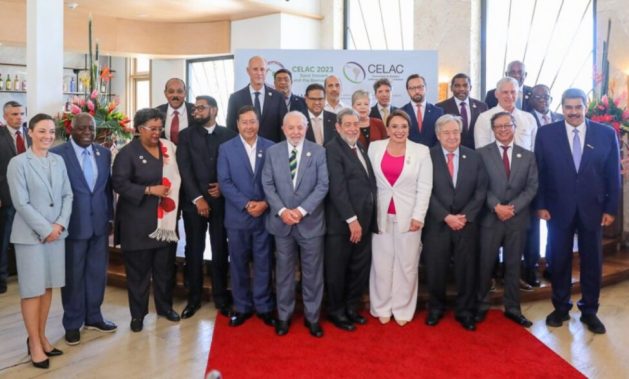[ad_1]

SANTIAGO, Mar 05 (IPS) – The regional dedication to struggle starvation and malnutrition in Latin America and the Caribbean has made vital progress due to the replace of the Meals Safety, Diet and Starvation Eradication Plan of the Group of Latin American and Caribbean States (CELAC) for the interval 2024-2030, referred to as the CELAC FNS Plan.
This replace was permitted and ratified through the VIII Summit of Heads of State and Authorities of CELAC, held on March 1 in Saint Vincent and the Grenadines.
This dedication proof Latin America and the Caribbean’s vital contribution to accelerating the success of the Sustainable Improvement Targets, aimed toward reaching societies freed from starvation, poverty, and inequality within the area.
Our newest estimates present that, in 2022, 6.5 % of the inhabitants of Latin America and the Caribbean suffered from starvation; this represented 2.4 million fewer individuals than in 2021. However the state of affairs stays essential; starvation continues to have an effect on 43.2 million individuals within the area.
Likewise, restricted entry to assets and providers, poverty, the aftermath of the pandemic, and conflicts in addition to climate-related disasters, amongst different components, are affecting the ecosystems on which meals manufacturing and the livelihoods of farming communities rely and threaten efforts to make sure meals safety, diet and the sustainability of agrifood techniques.
On this state of affairs, the CELAC FNS Plan 2024-2030 is a concrete initiative, mirrored in a unanimous response from greater than thirty nations, which, at a ministerial degree, agreed to replace this doc to deal with the problem of starvation and meals insecurity within the area.
The brand new plan -developed in coordination with the Professional-Tempore Presidency, at the moment led by Saint Vincent and the Grenadines and the thirty-three CELAC nations, included broad participation and evaluation with technical help from FAO, ECLAC, IICA, and ALADI- has turn into a benchmark for different areas of the world. Its implementation represents a milestone instance of the consensus and political dedication of Latin America and the Caribbean.
This plan, structured into 4 pillars, features a conceptual foundation to information the nations regarding authorized frameworks, sustainable manufacturing, entry to wholesome diets, and agrifood techniques resilient to local weather change.
2024 may signify a decisive yr for Latin America and the Caribbean to make progress in combating starvation and malnutrition and reaching extra resilient and sustainable manufacturing techniques. Throughout 2023, we have now consolidated a deep strategy of alliances, consensus, and dialogue that can quickly be a part of the FAO Regional Convention.
We’re within the remaining stretch of preparation for our Regional Convention to be held in March in Georgetown, Guyana, the place we’ll facilitate exchanges and discussions that will probably be important to information FAO’s technical cooperation within the design and implementation of plans and initiatives tailor-made to the wants of the nations, and consistent with the priorities outlined by governments on the highest political degree.
On this regard, the reflections and resolutions arising from the updating and subsequent approval of the brand new CELAC FNS Plan additionally signify a major contribution to the FAO Regional Convention.
The preparation of the Regional Convention contains an intensive session course of involving completely different stakeholders, such because the non-public sector, academia, civil society, and parliamentary teams; and naturally, the participation of presidency officers from the thirty-three FAO Member Nations; in addition to the presence of Heads of State and Ministers of Agriculture and different sectors dedicated to the seek for extra environment friendly, inclusive, resilient and sustainable agrifood techniques.
We hope that the outcomes of the Convention, translated into FAO’s mandate, will probably be consolidated as a tangible response. The success of those efforts will depend upon the collaboration of all to make the hope of a world with out starvation a actuality.
© Inter Press Service (2024) — All Rights ReservedAuthentic supply: Inter Press Service
[ad_2]




